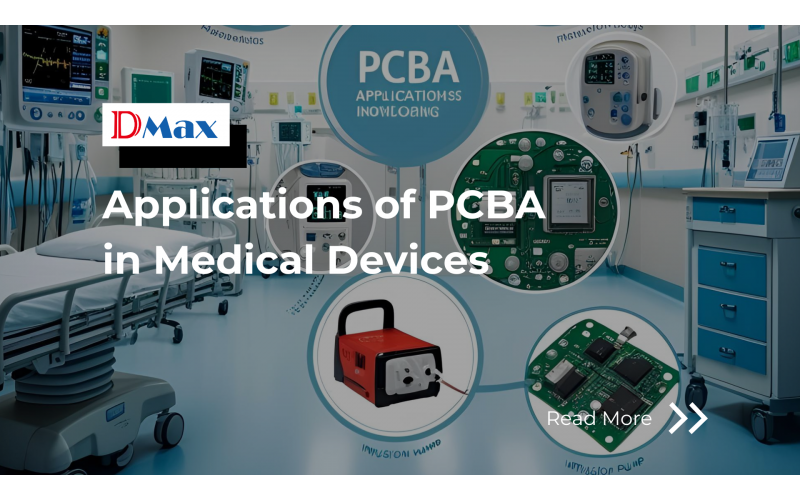
-
2025May
-
Applications of PCBA in Medical Devices
Key Applications of PCBA in Medical Devices
-
Patient Monitoring Devices
Devices such as ECG monitors, blood pressure monitors, and pulse oximeters rely on compact, high-precision PCBAs to ensure continuous and accurate data collection.
-
Imaging Systems
Equipment like CT scanners, X-ray machines, and ultrasound systems require PCBAs capable of handling complex signal processing and high data throughput with minimal noise interference.
-
Implantable Devices
Pacemakers and neurostimulators are examples of implantable electronics that demand ultra-miniaturized, biocompatible, and highly reliable PCBAs that can function for years inside the human body.
-
Diagnostic Tools
Blood analyzers, molecular diagnostics devices, and point-of-care testing machines use PCBAs that support high-speed data transfer and interface with sensors and software to deliver quick and accurate results.
-
Therapeutic Equipment
Devices such as infusion pumps and dialysis machines need durable and fail-safe PCBAs, as any malfunction can directly impact patient health.
Special Requirements for Medical PCBA
The medical industry places uniquely strict demands on PCBA design, manufacturing, and quality assurance:
-
Regulatory Compliance
PCBAs must comply with global medical standards such as ISO 13485, IPC-A-610 (Class 3), and FDA guidelines to ensure product safety and traceability.
-
High Reliability
Medical devices often operate continuously or in life-critical applications. The PCBAs must exhibit long-term durability and resistance to failure.
-
Miniaturization
Many medical devices are becoming smaller and more portable. PCBA design must accommodate compact layouts without compromising performance.
-
EMC & EMI Considerations
PCBAs must be designed to minimize electromagnetic interference, especially for devices operating near or inside the human body.
-
Cleanroom Manufacturing
For implantable or sterile products, manufacturing may be required in controlled cleanroom environments to prevent contamination.
Final Thoughts
As the medical device industry continues to evolve, the need for precise, reliable, and regulatory-compliant PCBAs becomes more important than ever. For OEMs and startups entering the healthcare sector, choosing a PCBA manufacturing partner with medical experience is not just an advantage—it’s a necessity.
Whether you’re developing a wearable health tracker or a next-generation diagnostic platform, working with a manufacturer that understands both the technical and regulatory landscape of medical PCBA can save time, reduce risk, and ensure a smoother path to market.
-
